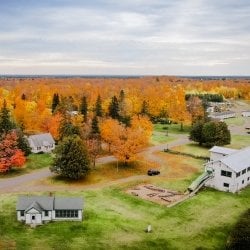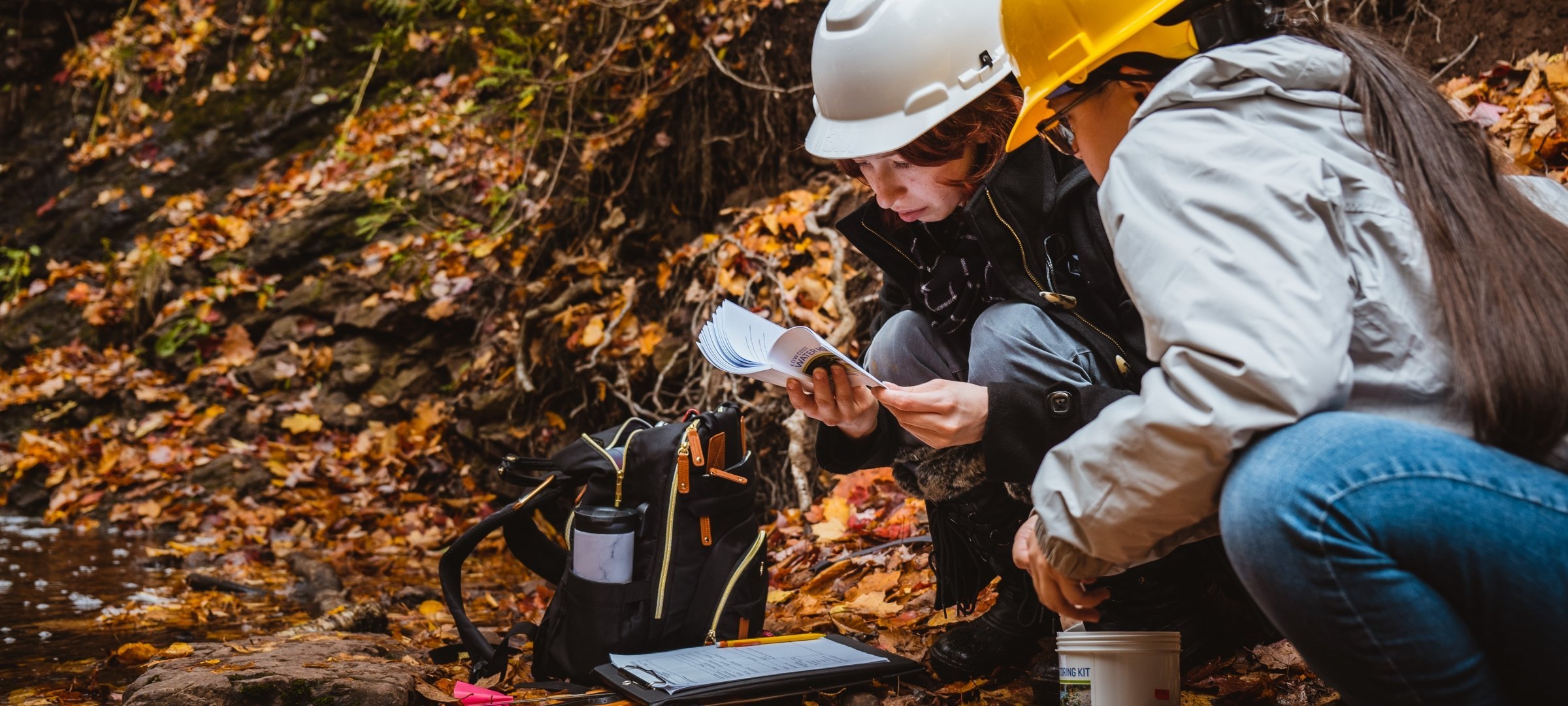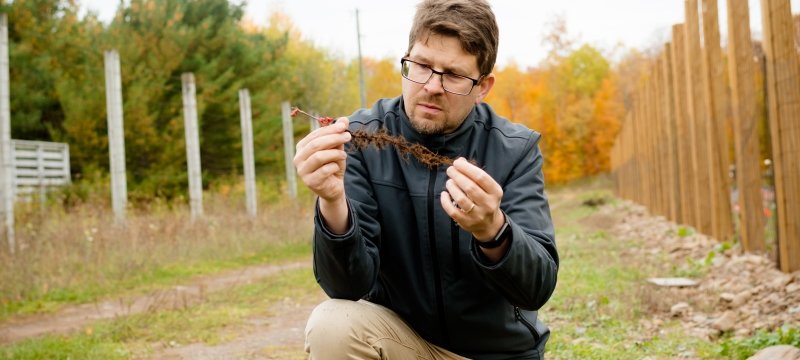Protect and improve our world's natural resources with other stewards just like you. Be what tomorrow needs with a Bachelor of Science in applied ecology and environmental science at Michigan Tech.
Other schools own forests—but ours is right out the back door at the Ford Center and Forest. There isn't a better place to study natural resources than the wild Keweenaw Peninsula, bordered by Lake Superior, blanketed with forests and wetlands (and 218+ inches of snow each winter). First-year students have two outdoor field labs and are all eligible to participate and be paid as Earn and Learn students, acquiring the hands-on knowledge and experience to land a summer job or internship after their first year.
Request Information
Form loading . . .
Upon graduation, students will have obtained hundreds of hours in the field, from classroom labs, to research. This experience puts our students a step above the rest when it comes to working for government agencies, non-profits, consulting firms, and others.
What is Applied Ecology and Environmental Science?
Environmental Science is the study of ecological systems and how they interact with each other. Ecology, a key component of environmental science, focuses on the relationships between organisms and their environment while Applied Ecology is the application of environmental science to real world problems.
Applied Ecology and Environmental Science is about understanding, analyzing, communicating and managing ecosystems in a scientific and sustainable way to benefit the coexisting relationships that humans have with the natural environment. Investigate vegetation, soil, and amphibians in the vernal pools of Pictured Rocks National Lakeshore. Analyze glacial retreat in Peru or post-fire plant communities in the Alaskan Interior. Survey grazed land in northern Patagonia. Your studies take you to the places where ecological, social, and biotechnological aspects of natural resources combine, from stream restoration, to invasive species mitigation, to the properties of soil. Applied Ecology and Environmental Science is about managing ecosystems for tomorrow.
What Will I Study?
If you love to be outside and are interested in studying ecological systems and how land-use management decisions are made to improve natural resources, you will feel at home in our applied ecology and environmental science program—home to endless opportunities for research.
Fieldwork, teamwork, leadership, and professional development prepare you to model, analyze, compare, communicate, and deploy tools and techniques used to understand biodiversity, human effects on soils, hydrological development, and climate change.
- Explore, measure, document, and analyze the terrestrial and aquatic ecosystems of the Keweenaw Peninsula. Bordered by Lake Superior, blanketed with forest and wetlands, our backyard is an ideal living lab.
- Make land-use decisions to enhance ecosystem composition, structure, and function.
- Collaborate with leading scientists to solve ecological and environmental problems.
- Learn how to use Geographic Information Systems (GIS), and be proficient in GPS, land measurement and remote sensing skills.
- Put your newfound skills and knowledge to work ASAP. After the first year of classes you'll be qualified to find a summer job in your field and start building your future career.
Concentrations
There are three concentrations to choose from:
Plant and Wetland Ecology
Study interactions between living organisms and their environment to understand ecosystem dynamics and the health of aquatic and terrestrial systems. Analyzing nutrient levels and restoring habitats with native species helping to protect wildlife and address broader climate change challenges.
Communicating Natural Resources
Learn to effectively managing ecosystems and communicating ecological information helps maintain the balance between human activities and the natural environment. This understanding supports sustainable forest management, informs landowners and the public, and drives advocacy and policy changes to mitigate climate crisis impacts.
Biotechnology
Utilize and advance technologies to monitor and manage the environment by generating energy from organic waste, removing pollutants, and developing sustainable resource harvesting methods. Explore genetics and biological controls to address species conservation, evolutionary relationships, and invasive species, while applying natural patterns to create future solutions.

"Camp" at the Ford Center and Forest
Spend a semester outdoors at our 3,500 acre forest just 40 miles away from main campus in Alberta, MI. During student's third year, they will live, eat, sleep, and study with peers while living in dorms located right on the property. Get out in the field Monday through Friday for classes such as survey of silviculture, forest health, and wildlife habitat to collect samples, study natural ecosystems, and learn the necessities that will help you attain your natural resource career. Learn more about "camp" - or integrated field practicum - here.
Be Career Ready
As humans continue to depend on ecosystems for a variety of values, tomorrow’s ecologists will need to understand how to manage our lands in an era of climate change and sustainability.
Each year, the College of Forest Resources and Environmental Science hosts its own Natural Resource Career Fair. ~20 companies from across the US travel to the college in late fall to educate and recruit employees.
Our applied ecology and environmental science graduates go on to work at government agencies, non-profits, and even create their own consulting companies.
Career Opportunities for Applied Ecology and Environmental Science
-
Field Ecologist
-
Research Technician
-
Environmental Analyst
-
Field Naturalist
-
Research Scientist
-
Environmental Consultant
-
Invasive Plant Technician
-
Entomologist
Michigan Tech Applied Ecology and Environmental Science Majors Have Been Hired By
-
Environmental Protection Agency
-
US Fish and Wildlife Service
-
National Park Service
-
Department of Transportation
-
Environmental and restoration consulting firms
-
State DNR
-
US Forest Service

